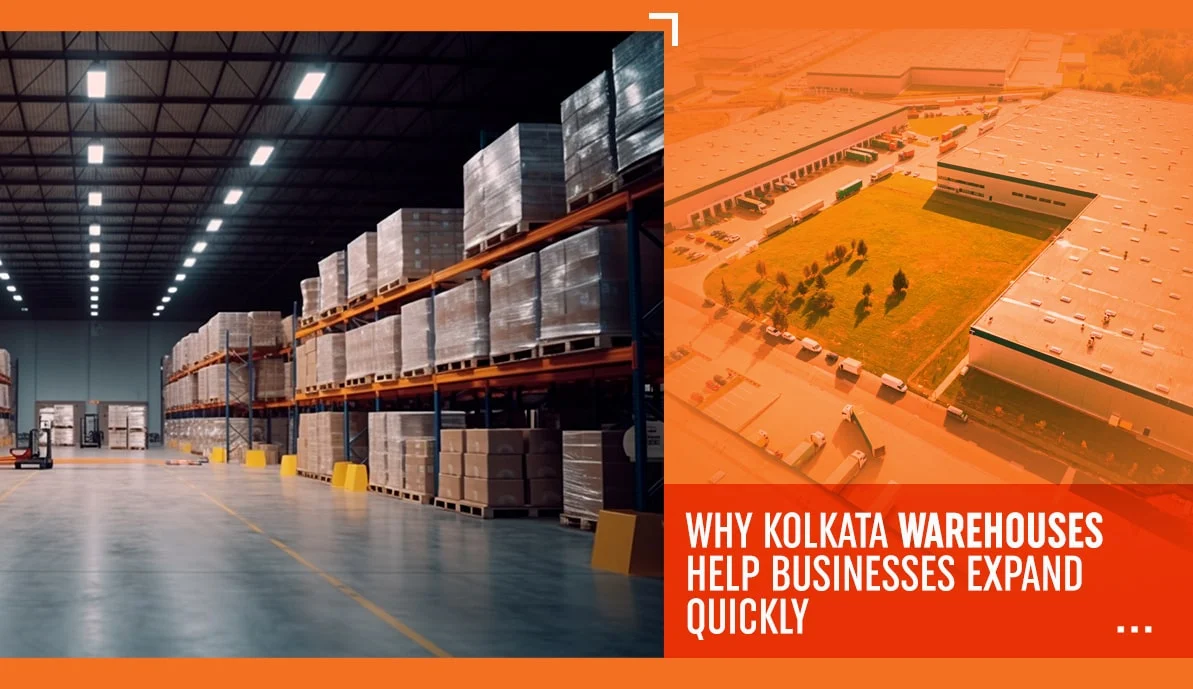Generally, e commerce warehousing services are critical for managing, storing, and moving goods in the supply chain. They certainly organise and secure products, making it easy to track their location, arrival time, storage duration, and current quantity. While the industrial area in Kolkata makes it the busiest city even in eastern India, it also contributes critically to the economy.
Therefore, developing efficient, innovative storage solutions tailored to a company’s specific requirements is critical. These solutions range from customised systems to traditional setups, accommodating various industrial sectors and preferences, including manually operated and fully automated warehouses. Now dealing with that, we will find out why warehouses in Kolkata really matter. What are its main aspects and advantages, and how is the industry really changing?
E-Commerce Businesses as a Contributing Factor
Recently, ecommerce activities have become increasingly popular worldwide, driving the evolution of warehouse solutions worldwide. In recent times, Kolkata has experienced a significant surge in demand.
During the pandemic, when traditional brick and mortar businesses were compelled to shut down, e commerce warehousing services platforms in Kolkata spiked, with elevated sales numbers, as mentioned in the TOI.
This sudden surge reflects a notable transformation in the city’s commercial landscape, where there’s now a greater need for versatile warehouses that can seamlessly adapt to changing requirements. This subtle shift underscores the vital role of warehouses in Kolkata, catering to the evolving demands of the modern business environment, especially in e-commerce logistics.
Key Factors Boosting the Growth of Warehouses in Kolkata
Due to its ideal location, strong infrastructure, and highly qualified workforce, Kolkata is a compelling choice for companies operating across a wide range of industries. Let us elaborate on it further.
-
Innovation
However, Kolkata has diversified its industrial area in Kolkata, as it focuses beyond traditional sectors of fibres and fabrics. It is now seen growing across healthcare, automobiles, renewable energy, construction, chemicals, FMCG, and other sectors, leading to an increased need for innovative warehousing spaces.
-
Geopolitical advantage
It is strategically positioned, and Kolkata serves as a vital hub, connecting key shipping routes and facilitating smooth trade with national and international markets through its proximity to ports, railways, and airports.
-
Advanced Infrastructure
Newer projects are now improving connectivity even further through ancillary amenities and advanced technology, promoting industrial development.
-
Qualified professionals
While warehouses in Kolkata, such as those at Ganesh Complex, benefit from a skilled workforce with extensive knowledge of logistics and related tasks, this leads to smooth operations and effective quality management.
-
Bonus Factors in Account
According to the experts from Ganesh Complex, strategically positioning warehouses in Kolkata near highways and major connectivity points to other parts of the country mostly leads to lower transportation costs, which is critical for businesses requiring efficient, timely goods movement. Indeed, this setup optimises supply chain operations, ensuring faster delivery to customers and thereby enhancing satisfaction.
The advantage of cost-effectiveness continues.
The city boasts affordable real estate, enabling companies to establish extensive warehouse facilities at a lower cost than in other major cities. Competitive labour rates do further reduce operational expenses, making it economically feasible for businesses to manage their workforce in the warehouses in Kolkata.
Furthermore, favourable utility costs enhance the overall affordability of warehouse operations, even in a specified area.
Another specific point is that Kolkata serves as a critical entry point to its neighbouring states, enabling companies to leverage growth opportunities in these regions while mitigating risks by spreading their warehouse locations and minimising the impact of unexpected events, such as natural disasters or labour strikes, within their operations.
However, the current buzz is always about sustainability. It becomes the foremost priority in the warehousing sector. Warehouses in Kolkata are already embracing environmentally friendly practices such as energy-saving lighting, solar energy, and efficient waste management to minimise overall environmental impacts. Together, this is a thumbs-up for future potential.
Concluding Thought
In a city like Kolkata, warehousing goes beyond mere storage, as it fuels business success in a competitive market. Therefore, Kolkata’s strategic position, well-connected transport, and embrace of modern tech have transformed its warehouses into critical assets for thriving enterprises.
Since Kolkata gained prominence, its warehouses will undoubtedly play a significant role in driving sudden economic growth and progress across eastern India. Having said that, the e-commerce boom continues to drive demand for warehouses in Kolkata and focuses on improving delivery quality and efficiency. While the industrial and warehouse real estate market is gradually experiencing steady growth, offering stability and profitability for investors, risks mainly depend on location, economic conditions, and investor risk appetite.
FAQ
-
Why is Kolkata a strategic location for warehousing and business expansion?
Kolkata serves as a crucial gateway to eastern and northeastern India, offering a strategic location for businesses looking to tap into a large consumer base. The city provides multimodal connectivity, reducing transportation time and costs. The city offers access to international markets, further broadening market reach.
-
What modern infrastructure advancements are making Kolkata a key warehousing hub?
The warehousing landscape in Kolkata has moved beyond traditional godowns to state-of-the-art facilities with advanced features, including:
Modern amenities
High ceilings and advanced material handling systems maximise storage capacity and efficiency.
Technology integration
The use of AI, warehouse management systems (WMS), and integrated transport management systems (TMS) streamlines operations.
Customisation and automation
Many new warehouses are equipped with features like automated picking and packing, robotics-compatible infrastructure, and temperature-controlled spaces for specialised goods.
Sustainability
Eco-friendly practices like rainwater harvesting and solar panels are increasingly being adopted.









